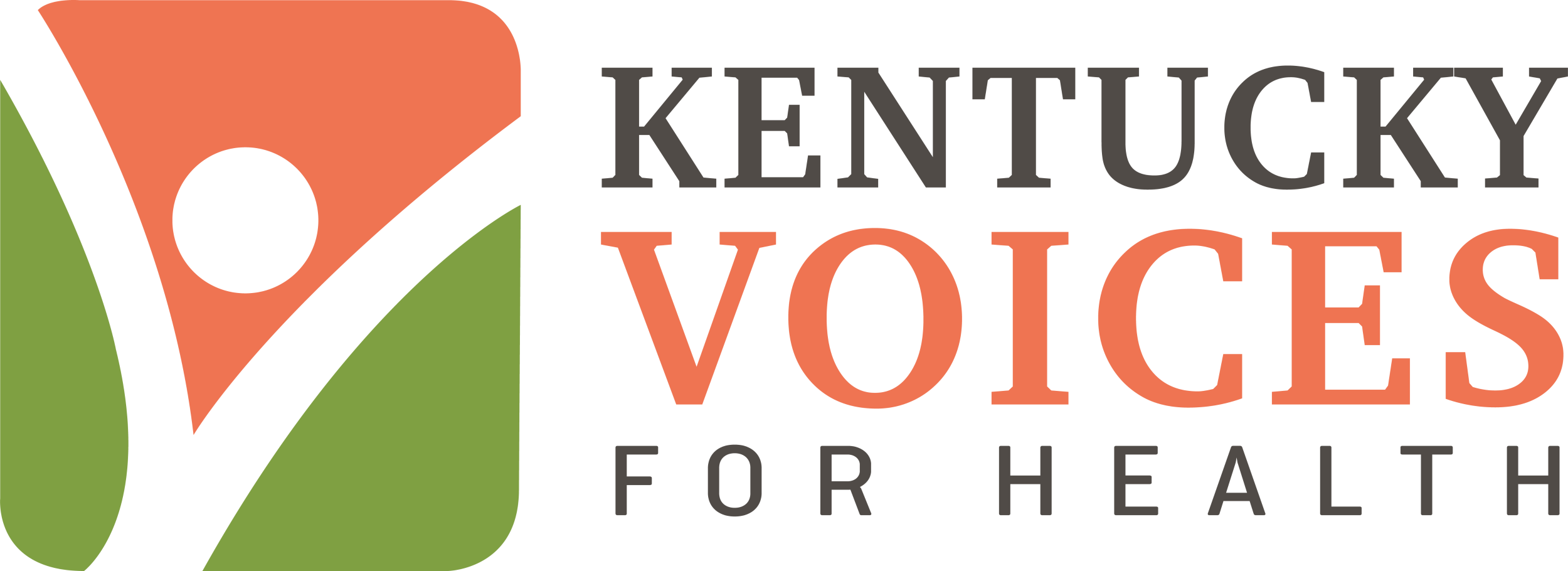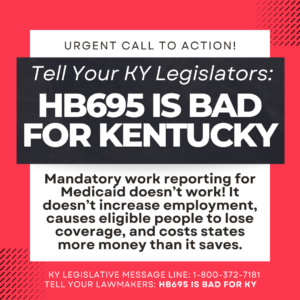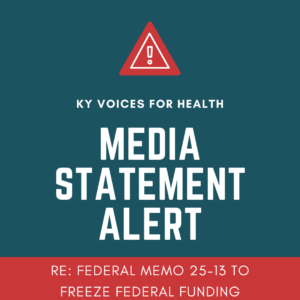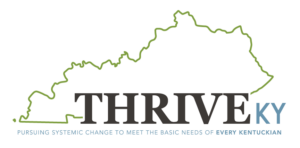Scammers Want Your Money & Your Identity. Here’s What You Need to Know.
One in three Kentuckians are going through the Medicaid renewals process for the first time since they were paused in 2020. Thousands are going to be finding themselves in a unique position of needing to enroll in healthcare outside of the usual Marketplace Open Enrollment dates. Thousands more will be required to provide personal information or documentation in order to verify Medicaid eligibility. Whether you use Medicaid for your healthcare or are shopping for a new health plan: PROTECT YOUR PERSONAL INFORMATION!
FIRST PRIORITY: PROTECT YOUR MONEY, IDENTITY & DIGNITY
Since humans invented money, scammers have found a calling, and they are savvy – as rapidly as technology can advance in our modern world, so do their tactics. Many Medicaid members are either new to the renewal process or simply unfamiliar with the paperwork requirements and scammers are doing what scammers do best. They are capitalizing on the opportunity to try to trick millions of Americans out of their hard-earned money and take advantage of the volume of personal information being submitted in hopes that for every piece of information that they can compromise, even more fraud can be committed under the veil of someone else’s identity. Kentuckians should be protective of sharing personal information such as their full name, Social Security number, and date of birth. These things are often referred to as Personal Identifiable Information, or, PII.
When enrolling in or renewing Medicaid and Medicare coverage or if you are enrolling in Marketplace healthcare, official government employees will never threaten you, ask for credit information or make other suspicious demands.
Regardless of the type of coverage you enroll in, all enrollees need to be on alert for outright fraud and identity theft. The Kentucky Department for Medicaid Services (DMS) may very well need new or additional information from you in order to complete your renewal, but remember that you will NEVER have to pay to complete your renewal, and government employees will NEVER threaten you, ask for credit information or make other suspicious demands.
When a phone number has been spoofed, it will appear as though a local or recognizable phone number is calling you. On spoofed lines, you will often hear a very brief ‘beep’ at the start of the call, connecting you to a scammer often hundreds of miles away, waiting with their script to push whatever gimmick they’ve been convinced to “sell”.
If anyone calls claiming to be from the government, but lacks your Medicare, Medicaid, or Social Security numbers or asks for credit card or banking information, it’s probably time to hang up. You always have the power and the right to hang up the phone and call one of the official state hotlines to guarantee you are speaking with a legitimate state employee, kynector, or agent. The kynect line is 855.4kynect and the Kentucky Department for Community Based Services line is 855.306.8959. The downside is that you may be placed into a wait-line queue, but you will have the peace of mind knowing your PII (and dignity) have not been compromised, and that is invaluable.
SECOND PRIORITY: BUYER BEWARE!
For new health plan shoppers, low-cost “skinny” plans and “junk plans” are simply not what they seem. These short-term plans are intended to fill temporary coverage gaps, but many only offer plans that come with usage restrictions, hidden fees, and major coverage limitations. Do your research and remember that if something sounds too good to be true, it probably is.
For those who wish to explore the peculiarly affordable and appealing sticker price of “skinny” plans anyway, shop wisely for the care you need and deserve! Unlike health plans sold on kynect, these plans will not limit out of pocket costs—but—they may limit the amount that insurance will cover either for individual procedures, or over the course of a lifetime. In other words, if you purchase one of these plans and then have an accident that lands you in the Emergency Room, you might be on the hook for all costs above your plan’s coverage cap.
Buyer Beware! For new health plan shoppers, low-cost “skinny” plans and “junk plans” are simply not what they seem.
“Skinny” plans can, and will, exclude Kentuckians with pre-existing medical conditions—such as diabetes or cancer—from receiving coverage. They can drop you from coverage if you’re diagnosed with a condition even after enrolling, possibly leaving you with no options until the next Open Enrollment Period.
Cancer treatment drugs alone can cost $10,000/month on average, not to mention the cost of other cancer-related care. Nobody should have to choose between getting the care they need to live and going bankrupt. That’s why it’s important to look out for certain things to guarantee the plan you’re buying covers everything you need:
- Make sure your coverage lasts for a full year.
- Shop on price AND value.
- Know how much you’ll need to pay out-of-pocket for co-pays, co-insurance, and your deductible.
- Make sure there is an annual cap on the amount of money you must pay out-of-pocket.
- Get clear on what benefits, providers, and facilities are covered in-network.
A low sticker price may be hiding the fact the plan doesn’t cover things like hospital visits, prescriptions, or places a dollar cap on benefits, which will leave you at risk for hundreds or thousands of dollars in medical bills.
4 out of 5 Kentuckians are eligible for premium tax credits that can make plans less than $10 a month. Many Kentuckians can enroll in plans for $0 a month!
REMEMBER!
It’s more important than ever for Kentuckians to read the fine print on their health insurance plan and be on the lookout for scams. In today’s economy, no one has time to give money to scammers, find themselves or their loved ones unable to get care when it’s needed most, or compromise their identity.
kynect is the trusted place for Kentuckians to find quality health plans so you can get and stay healthy. For Kentuckians with incomes up to 150% FPL, you can enroll in plans for $0 a month! 4 out of 5 Kentuckians are eligible for premium tax credits that can make plans less than $10 a month. There is additional assistance to reduce the cost of copays, coinsurance, and deductibles. Find out if you’re eligible for these savings and reach a legitimate representative (& not a scammer!) by visiting kynect.ky.gov, or by calling either 855.4kynect or 855.306.8959 today.
To learn more about the author, visit: https://kyvoicesforhealth.org/our-team/.




